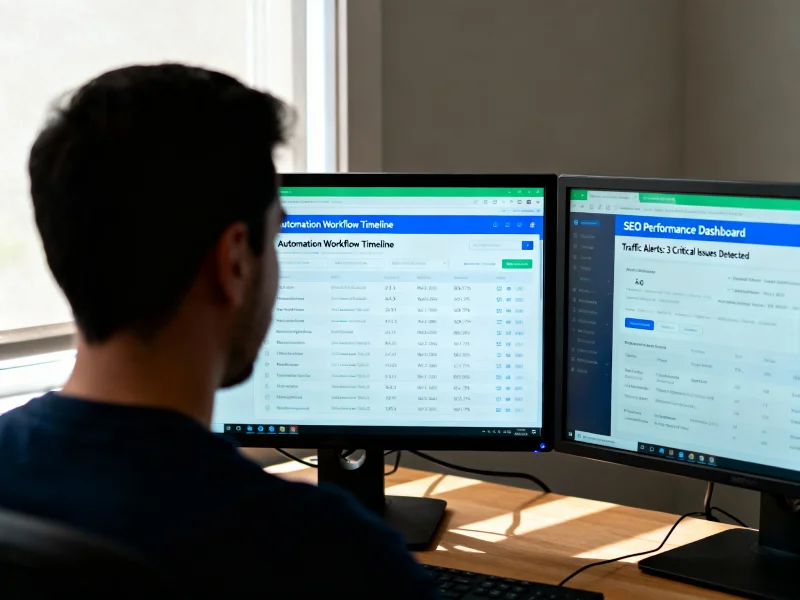Video Seo: How To Rank Your Videos On Youtube And Google
As the world's second-largest search engine with over 2 billion monthly active users, YouTube has become an essential platform for content creators to reach their audience. However, simply creating high-quality videos is not enough to guarantee success on this vast video-sharing platform. To stand out from the millions of other videos uploaded every day and attract viewership, it is crucial to optimize your videos for search engines through Video SEO.
Video SEO involves optimizing your videos' title, description, tags, and other factors so that they rank higher in search results on both YouTube and Google. By ranking higher in these searches, you can increase your visibility and reach a wider audience for your brand or business. In this article, we will delve deeper into the strategies and best practices needed to maximize your videos' potential and help you climb up the ranks of YouTube and Google's search algorithms.
Understanding Video Seo And Its Importance
Video SEO techniques are essential for content creators who want to maximize the visibility and reach of their videos on YouTube and Google. Understanding how video SEO works is crucial because it allows you to optimize your video content, making it more discoverable by both search engines and users. Video SEO encompasses various strategies, including keyword research, metadata optimization, and engagement metrics analysis.
YouTube algorithm updates have made it increasingly challenging for content creators to get their videos seen by a broader audience organically. However, implementing effective video SEO techniques can help overcome this challenge. By optimizing your video's title, description, tags, and other metadata elements using relevant keywords, you increase the likelihood that your video will rank higher in search results.
Moreover, analyzing engagement metrics such as view count, watch time, likes/dislikes ratio, comments, etc., is critical for improving your videos' overall performance. These metrics provide insights into how viewers interact with your content. This information enables you to make data-driven decisions about how to improve future videos' quality and relevance to your target audience. Implementing these strategies will result in increased views and better engagement rates over time without relying solely on paid promotion or advertising campaigns.
By understanding the importance of video SEO techniques and utilizing them effectively amidst YouTube algorithm updates, content creators can achieve greater success in terms of organic traffic growth and viewer engagement levels. With constant attention given towards refining one’s skills within this area of expertise – mastery becomes possible for those willing enough to put forth effort while working smarter rather than harder!
Conducting Keyword Research For Your Videos
Understanding the importance of video SEO is crucial to ensure that your videos rank high on both YouTube and Google. However, it's not enough just to understand what video SEO is; you also need to conduct thorough keyword research for your videos.
Keyword research involves identifying the most relevant keywords or phrases that people are searching for related to your video content. This process will help you optimize your videos with searchable titles, descriptions, tags, and captions so that they can be easily discovered by potential viewers.
To conduct effective keyword research, it's important to start by understanding YouTube Trends. You should keep an eye on trending topics within your niche and identify any recurring themes or popular keywords that could be used in your own videos. Additionally, conducting competitive analysis can give you insights into which keywords your competitors are targeting and how successful their campaigns have been.
Four Key Steps for Conducting Keyword Research:
- Identify target audience
- Brainstorm relevant topics
- Use keyword tools such as Google AdWords Keyword Planner or TubeBuddy
- Analyze competition
By following these steps, you'll be able to create a comprehensive list of targeted keywords that will improve your chances of ranking higher in search results and reaching more viewers on YouTube and beyond. Remember that keyword research is an ongoing process, so make sure to regularly review and update your chosen keywords based on changes in trends and competition within your niche.
In summary, while understanding the basics of video SEO is vital, conducting proper keyword research allows you to target specific audiences and increase visibility across platforms like YouTube and Google. By staying up-to-date with YouTube Trends and analyzing competitor strategies, you'll be equipped with the knowledge necessary to choose effective keywords for optimizing each of your videos.
Optimizing Your Video Title, Description, And Tags
The title of a video is the first thing viewers notice and is the most important factor in search engine optimization (SEO). Optimizing the title by including the appropriate keywords can help viewers find the video more easily. A good video description should provide more information about the video and should also include the relevant keywords to help viewers find the content. Lastly, optimizing video tags can help ensure that viewers find the video by indicating what topics the video covers.
Optimizing Video Titles
In the realm of video SEO, optimizing your video titles is a crucial factor in ranking higher on both YouTube and Google. A well-crafted title can not only entice viewers to click but also provide relevant information about the content itself. Therefore, including branding elements such as logos or slogans within the title can help establish brand recognition and increase visibility.
However, it's important to avoid using clickbait titles that mislead or deceive viewers into watching something irrelevant. Not only does this harm credibility, but it also leads to low engagement rates and ultimately harms rankings. Instead, make sure your title accurately reflects what the viewer will be seeing in the video.
When crafting your video title, keep in mind that it should be concise yet informative enough for potential viewers to understand what they'll be watching. Including target keywords related to your topic can also improve chances of appearing in search results. Taking the time to optimize your video titles may seem like a small task, but it plays an integral role in boosting overall visibility and driving traffic to your channel.
Optimizing Video Descriptions
After optimizing your video title, the next step in improving your video's visibility is by crafting a well-written and informative video description. This section provides an opportunity to give viewers more context about the content of the video, including additional details that may not have been covered in the title.
A good practice is to start with a summary of what the viewer can expect from watching the video. Use keywords related to your topic and incorporate emojis to make it visually appealing and easier to read. It's also important to include any relevant links or calls-to-action within the first few lines since these are visible without having to click "show more" on YouTube.
Formatting tips such as using bullet points, paragraph breaks, and bolding key phrases can help break up text into digestible chunks for viewers scanning through descriptions quickly. Additionally, incorporating target keywords throughout the description can improve chances of appearing in search results and increase overall visibility. By taking advantage of this valuable real estate below your videos, you can provide better context for potential viewers while also boosting SEO efforts.
Creating Engaging And Relevant Video Content
Video storytelling is an essential aspect of creating engaging and relevant video content. It involves crafting a compelling narrative that resonates with your target audience, evokes emotions in them, and leaves a lasting impression. Effective video storytelling requires careful planning, creativity, and attention to detail. By telling stories through videos, you can connect with your viewers on a deeper level and establish a strong emotional bond.
Another critical factor in creating engaging and relevant video content is audience targeting. You need to know who your target audience is, what their interests are, what problems they face, and how your product or service can help solve those problems. By understanding your audience's needs and preferences, you can create videos that speak directly to them, capture their attention, and keep them engaged throughout the entire duration of the video.
In summary, Video storytelling and Audience targeting are two key components for creating effective video content. A well-crafted story will evoke emotion from the viewer while targeting specific audiences improves engagement rates by providing personalized messaging. These elements require careful consideration when producing high-quality videos that will rank successfully on YouTube or Google search results pages. Incorporating these techniques into your creative process may take time but it’s worth the effort as it leads towards better results over time!
Analyzing Your Video Performance And Making Improvements
One of the most crucial steps in optimizing your video content for search engines is conducting a thorough analysis of its performance. By analyzing key metrics such as traffic sources, engagement rates, and audience retention strategies, you can gain valuable insights into how viewers are engaging with your videos. This data can then be used to make informed decisions about how to improve your content and increase its visibility on YouTube and Google.
When it comes to video analytics, there are several tools available that can help you track and measure your video's performance. These include platforms like YouTube Analytics, which provides detailed statistics on views, watch time, demographics, traffic sources, and more. You can also use third-party tools like VidIQ or TubeBuddy to conduct keyword research and analyze competitor videos.
To truly optimize your video content for search engines, however, it's not enough to simply gather data - you need to take action based on those insights. Here are three actionable tips you can use to improve your video performance:
- Focus on improving audience retention by creating compelling intros that hook viewers from the start.
- Optimize your metadata (such as titles, descriptions, tags) using relevant keywords to ensure better discoverability.
- Experiment with different types of content (such as tutorials or behind-the-scenes footage) to see what resonates best with your audience.
By putting these audience retention strategies into practice and regularly monitoring your video analytics data, you'll be well on your way towards ranking higher on YouTube and Google search results pages - ultimately driving more traffic and increasing brand awareness without spending any additional marketing dollars.
Frequently Asked Questions
Can I Use The Same Keywords For My Video And Website Seo?
Optimizing video tags and creating a compelling video description are integral components of successful video marketing. While it may be tempting to use the same keywords for both your website SEO and video, it is important to consider that these two mediums serve different purposes. Website SEO aims to improve visibility on search engine results pages (SERPs), while video SEO focuses on ranking videos within YouTube's algorithm. Therefore, using identical keywords may not necessarily yield optimal results for both avenues. Additionally, including relevant tags in your videos can help increase their visibility within YouTube's recommended content section or related videos section, potentially increasing views and engagement. Crafting a thorough and descriptive video description can also aid in improving search rankings by providing context for viewers and search engines alike. Ultimately, taking advantage of tag optimization and crafting effective descriptions can lead to increased exposure and success in the competitive world of online video marketing.
How Does Video Length Affect Seo Ranking?
The length of a video is a significant factor in determining its search engine ranking. A longer video provides more opportunities for engagement and can keep viewers on the page for an extended period, signaling to search engines that the content is valuable and authoritative. However, it's crucial not to sacrifice quality for length, as low-quality videos will be penalized by search algorithms. Optimizing video descriptions with relevant keywords can also improve SEO rankings significantly. Including target keywords in the title, tags, and description fields helps both users and search engines understand what your video is about and increases the likelihood of appearing in related searches. By optimizing video descriptions and maintaining high-quality standards, brands can maximize their visibility on Google and YouTube while providing value to their audience.
Is It Important To Have Closed Captions Or Subtitles On My Videos For Seo Purposes?
Video accessibility is a crucial aspect of video SEO that should not be overlooked. Closed captions or subtitles on videos provide an added layer of convenience to viewers who are deaf, hard-of-hearing, or watching in noisy environments where sound may be difficult to hear. Having closed captions also improves the user experience and engagement with your content by allowing viewers to follow along even when sound isn't practical. Additionally, adding multilingual subtitles can broaden your audience reach beyond native English speakers. By making your videos more accessible through closed captions and multilingual subtitles, you increase the likelihood of improving engagement metrics such as watch time and retention rates, ultimately positively impacting your overall video SEO strategy.
Can I Optimize My Video For Both Youtube And Google Search Results?
In order to optimize a video for both YouTube and Google search results, it is important to conduct thorough keyword research. This involves identifying the words and phrases that are most relevant to your content, as well as those that are commonly searched by your target audience. Additionally, social media promotion can be an effective way to increase visibility and engagement with your videos. By sharing links on various platforms and encouraging viewers to share and comment on your content, you can improve its overall ranking in search results across multiple channels. Ultimately, a comprehensive approach that incorporates both keyword research and social media promotion can help ensure that your videos reach their full potential in terms of visibility and engagement.
How Does The Number Of Views And Likes Affect My Video's Ranking On Search Engines?
The number of views and likes a video receives can have an impact on its ranking in search engine results, including those for YouTube and Google. Video engagement is a crucial factor that search engines use to evaluate the relevance and popularity of content. Social media promotion can also influence the number of views and likes a video receives, which in turn affects its ranking. However, it's important to note that there are numerous other factors at play when it comes to video SEO, including keyword optimization, metadata, and user behavior metrics such as watch time and click-through rates. Ultimately, creating high-quality videos that resonate with viewers should be the primary focus for achieving long-term success in both social media promotion and search engine rankings.
Conclusion
Video SEO is an essential tool for any business looking to increase its online visibility. This article has provided crucial insights into some of the most critical aspects of video ranking on YouTube and Google search engines. One key takeaway from this discussion is that optimizing videos with relevant keywords can improve their chances of appearing high in search results. Additionally, closed captions or subtitles can make your videos more accessible to a broader audience, which may enhance their overall performance.
Another significant factor addressed in this article is how video length affects SEO ranking. While there's no set rule on the ideal duration, it's advisable to keep them concise and engaging enough to retain viewers' attention. Finally, businesses must monitor views and likes as these metrics are vital indicators of a video's success. In summary, implementing effective Video SEO strategies will undoubtedly bring enormous benefits for businesses seeking greater visibility on YouTube and Google searches.









